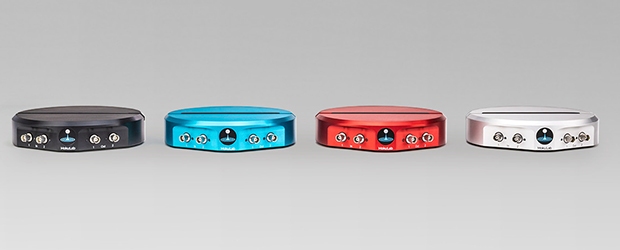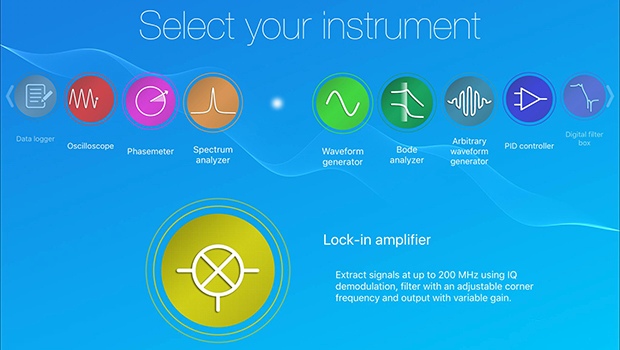Liquid Instruments was founded by a team of experimental physicists and engineers with expertise in precision measurement and gravitational wave detector instrumentation. Below is our recent interview with Chris Gardner, Marketing Director at Liquid Instruments:

Q: Could you provide our readers with a brief introduction to Liquid Instruments?
A: Liquid Instruments develops and manufactures test & measurement instruments for a broad range of customers. Really anyone who designs, tests, or works with electronic equipment, will already use some instruments that we provide. However, Liquid Instruments is focused on professional scientists and engineers providing the, accuracy, capabilities, and features they require. The big difference is we provide all this in a single device.
Liquid Instruments was founded in 2014 by a team of experimental physicists and engineers, with expertise in precision measurements. They were generally frustrated with the lack of innovation in test and measurement equipment. Lab equipment today often looks the same as they did twenty years ago because they are using the same oscilloscopes, spectrum analyzers, and other conventional instruments. The founders of Liquid Instruments set out to design the company’s flagship product, Moku:Lab, with the idea of taking the best in modern user interface design and bringing it to the test and measurement industry. The result is a single device that integrates 12 precision test and measurement instruments into a single software-reconfigurable platform with a portable and modern interface.
 Recommended: Global Automotive Company Group Renault Has Joined The Open Invention Network
Recommended: Global Automotive Company Group Renault Has Joined The Open Invention Network
Q: Can you tell us more about Moku:Lab and why this reimagining of test and measurement equipment is important?
A: Until very recently, researchers bought an oscilloscope to measure signals in the time domain, a spectrum analyzer to measure them in the frequency domain, and a Lock-in Amplifier to recover signals. Fundamentally these are all voltage measurements, so these instruments have similar electronics and redundant capabilities. However, because they were developed independently, manufacturers have a hard time combining functionality or aren’t interested in doing so. Also, this type of integration requires robust software integration which hasn’t been a strong focus for manufacturers, and to be fair, it would be difficult to retrofit existing equipment. It’s like taking a car built in the 90’s and adding autonomous driving.
Liquid Instruments started from scratch with the intention of developing a single device with multiple uses. We’ve put all that functionality and more into very-high-speed digital signal processing and created software to allow rapid reconfiguration. In this way Moku:Lab represents a fundamental transition in test and measurement equipment. We can expand and improve Moku:Lab without the costly replacement of hardware in many cases. This is important for many reasons. Cost for one, but also the lower training requirements and faster results by removing setup time.
Q: You’ve recently announced partnership with Beijing Institute of Technology; could you tell us something more?
A: This is a superb partnership. For an educational setting like a graduate or undergraduate lab, the Moku:Lab provides real world measurement capabilities that extend far beyond both the instrument capabilities and the breadth of instrumentation that is typically affordable to even the best universities for educational purposes.
Add to this the unique user interface, which does not rely on switches and knobs but uses a touchscreen interface. This allows the user to see exactly what they’re doing. In some of our instruments you are adjusting the values right from the instrument block-diagram. This leads to better understanding of how these instruments perform. Quoting one of the professors tasked with designing the new lab space, “Moku:Lab saves time in learning how to adjust and operate instruments, so that more time is put into practice. Moku:Lab greatly improves the efficiency of experiment.”
Also, because the interface and display are not hardwired to the instrumentation, communication between instructors and students is much easier. Students can take their display over to the instructor and still have complete control of an experiment, even if that experiment is in the next room or down the hall.
All of this led to Beijing Institute of Technology choosing Moku:Lab as a standard for electronics lab equipment for students. Liquid Instruments has also made curriculum part of our developmental process. We are working with other leading universities in the development of this curriculum.
 Recommended: An Interview With David Wyatt, Vice President Of Revenue And Clearinghouse Services At Greenway Health
Recommended: An Interview With David Wyatt, Vice President Of Revenue And Clearinghouse Services At Greenway Health
Q: What are your plans for the future?
A: Our short-term roadmap is to continue expanding the number of instruments and broaden the features of existing instruments. Beyond this we are developing new platforms to expand the vision of Moku:Lab into other areas.

